Ensuring physical, technological and cultural accessibility for people with a disability is a key area of focus for RMIT.
The University was proud to be recognised as the leading organisation for accessibility in the Australian Network on Disability Access and Inclusion Index. RMIT was also the highest-ranked organisation for ‘Work Adjustments’, ‘Premises’ and ‘Products and Services’ for provisions for staff and students with disability.
RMIT promotes inclusion for thousands of students with disability through individual education support plans, professional counsellors, mental wellbeing programs, mentoring and internships, and accessible teaching and learning materials.
The Equitable Learning Services (ELS) team provides individual consultations to students with a disability, neurodivergence, long-term illness and/or mental health conditions and primary carers of individuals with a disability. Each year approximately 3,000 students register for an individualised Equitable Learning Plan gaining access to advice, services and adjustments to ensure their equitable participation and to support their success in their studies. An ELP can provide students with equitable adjustment arrangements, including adjustments to study and assessment, sign language interpreters and other support staff, accommodation scholarships, and assistive technologies.
RMIT values the richness of diversity among staff and recognises the contribution being made already by those working with disability. RMIT has proudly achieved Disability Confident Recruiter status. As a signatory to the Disability Confident Recruitment Charter, RMIT offers advice and support through recruitment processes to ensure inclusive applicant management. RMIT also took part in the Australian Network on Disability Stepping Into internship program, and PACE mentoring program which involved the University engaging with AND to identify candidates for both programs who want to engage in the education sector.
The AND Access and Inclusion Index report informs priority actions. In 2021, in recognition of our sustained achievement as a leading organisation in the Index, AND invited RMIT to join its Advisory Group to review the Index and as a result, we have maintained recognition as a leading organisation.
The Workplace Adjustment Officer focuses on making workplace adjustments for staff with disability and/or neurodivergence, which may include physical changes to the working environment, technological adjustments or working arrangement flexibility. We continue to work on training and development and evaluation of our services as a key opportunity to create disability confidence for our staff and student community. Driven by its Inclusion, Diversity, Equity and Access (IDEA) Framework and its aspiration to build an RMIT that is ‘inclusive by design for everyone, everywhere, all the time’the Inclusion, Diversity, Equity and Access Framework, RMIT is committed to enhancing inclusion and ensuring full and effective participation by all.
Campus infrastructure
Each year Property Services works with the RMIT Disability and Accessibility Working Group and stakeholders from across the University, guided by the IDEA Framework, to deliver improvements to the accessibility of our campus facilities to enhance the staff and student experience.
RMIT aims to be an example of the positive change you can make to peoples’ lives by going beyond the minimum set by building standards and creating new environments that are truly inclusive by design.
Changing Places
RMIT University has six Changing Places facilities across its three campuses. This makes RMIT the leading university in Australia when it comes to the number of Changing Places facilities.
Changing Places provide suitable facilities for people who cannot use standard accessible toilets.
A Changing Places facility allows people with high support needs to fully participate in the community. This may include people with an acquired brain injury, spinal cord injury, cerebral palsy, multiple sclerosis, spina bifida, and motor neurone disease, as well as many other people with a disability.
Changing Places facilities provide:
- a height-adjustable adult-sized change table
- a constant-charging ceiling track hoist system
- a centrally-located peninsula toilet
- circulation spaces as defined in the design specifications
- an automatic door with a clear opening of 950 mm at a minimum (1100 mm for beach and lake locations)
- a privacy screen.
Images: RMIT Changing Places
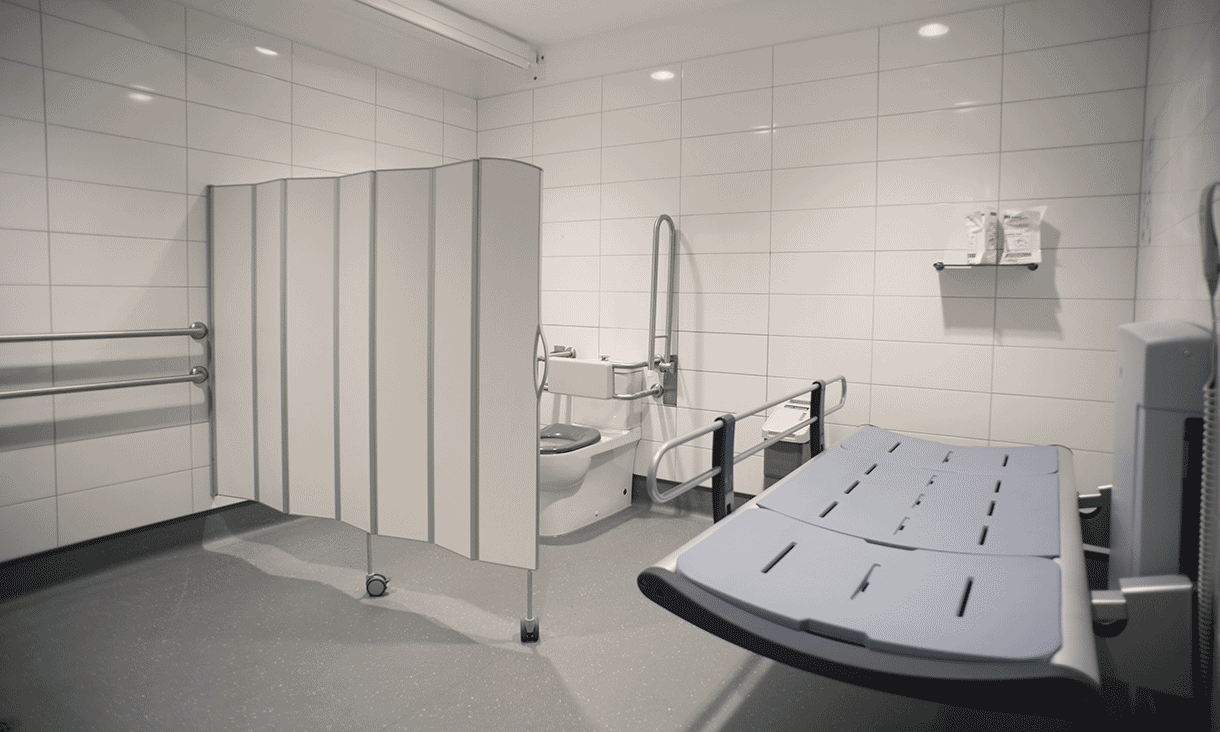
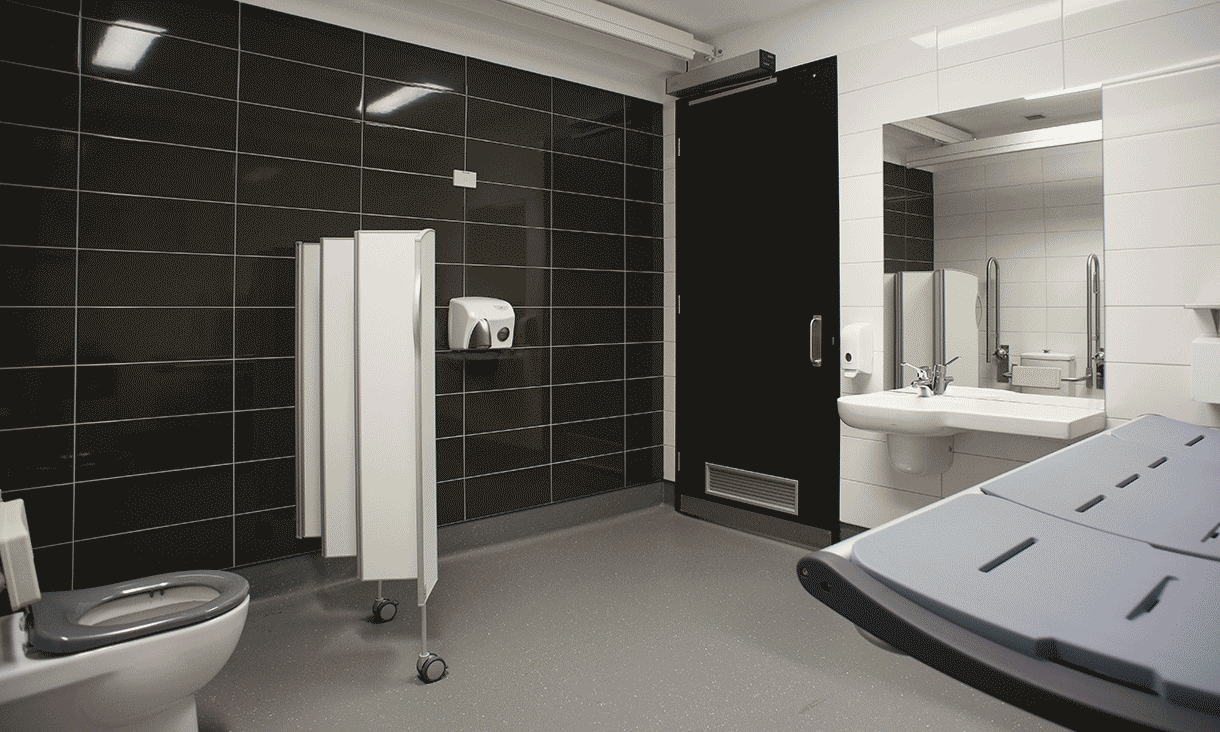
Campus navigation
Mobility maps
RMIT has developed Mobility Maps for all campuses highlighting all accessible facilities (including accessible parking, accessible toilets and Changing Places) and accessible routes/building entries to support our community.
- City campus mobility map (PDF 204 KB)
- Brunswick campus mobility map (PDF 163 KB)
- Bundoora West campus mobility map (PDF 386 KB)
Pedestrian zones
The central cores of our City, Bundoora and Brunswick campuses are fully pedestrianised with no vehicle access (access is only granted to service vehicles out-of-hours). This means the majority of our external spaces are inclusive pedestrian spaces.
Images: Central pedestrian spaces across our Melbourne campuses.
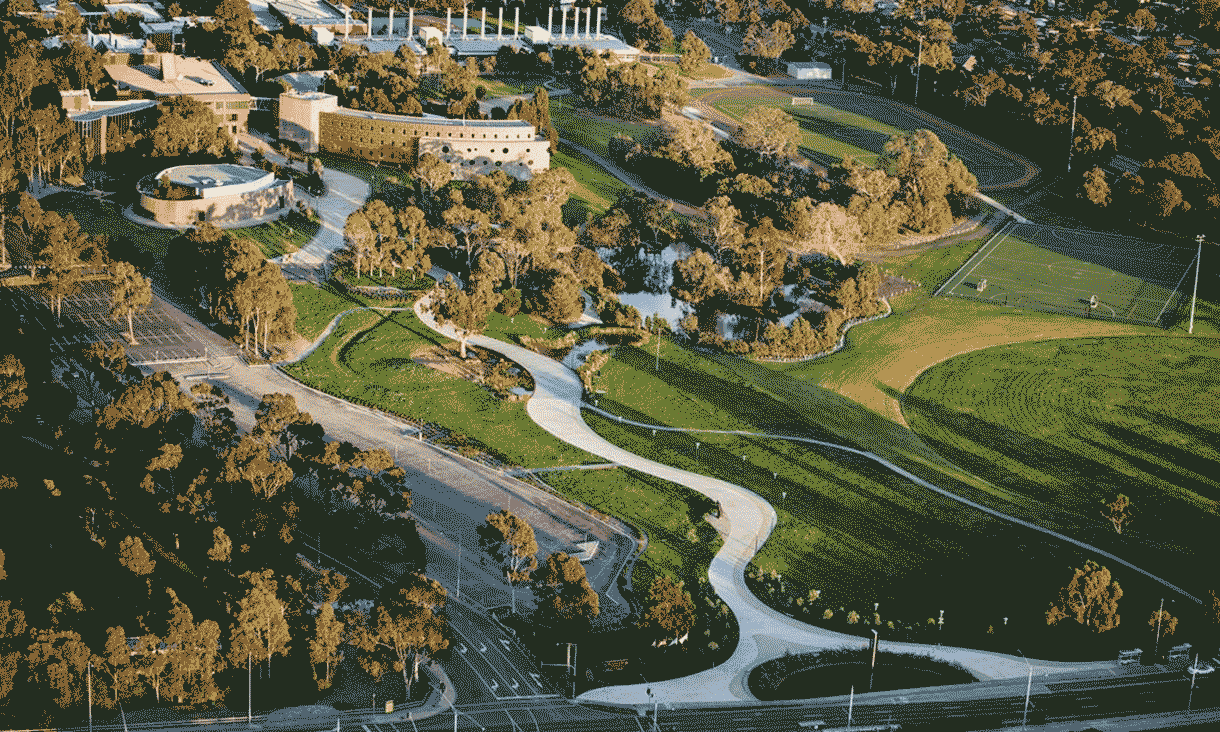
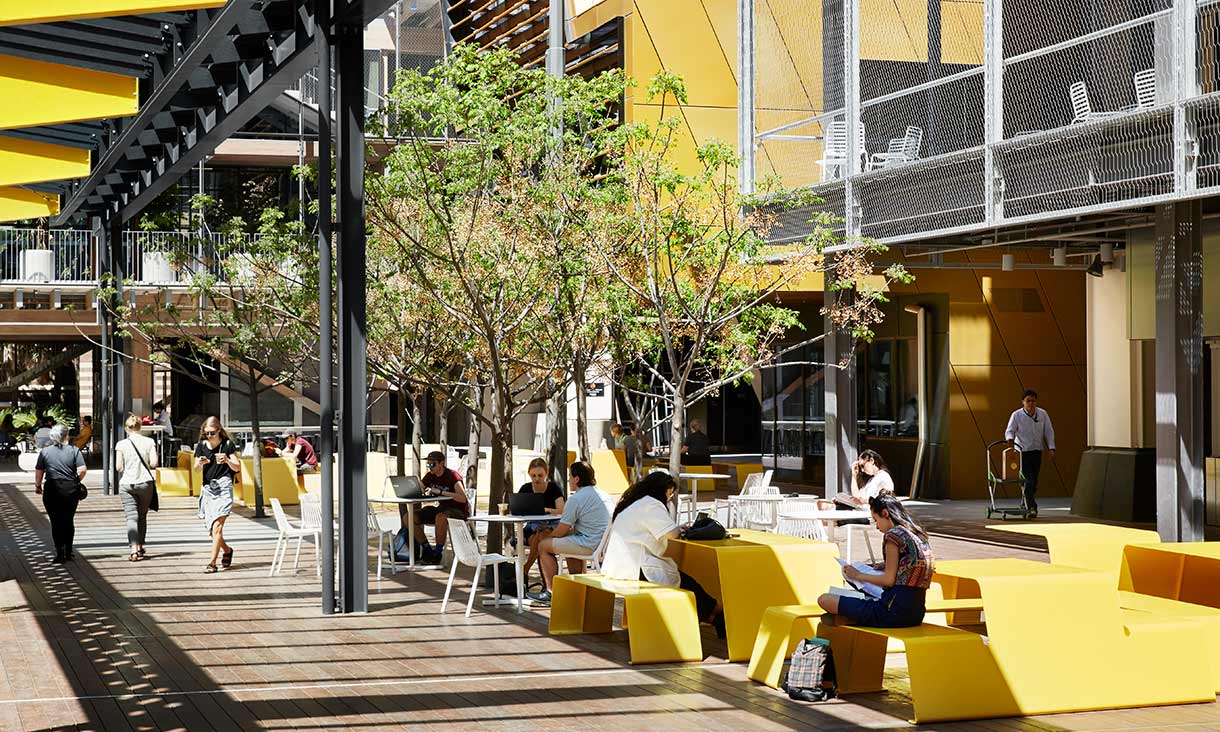
Annual improvements
RMIT aims to ensure all premises are up to current building standards at a minimum and go beyond, setting best practice outcomes.
Property Services and the Disability and Accessibility Working Group lead a significant investment program at RMIT to improve the staff and student experience working and learning with a disability. Each year the Capital Development Program delivers building and facility accessibility upgrades. Projects for inclusion are identified via student and staff feedback and with assistance from external specialist consultants to audit and report on accessibility requirements.
RMIT's Property Services Design Standard documentation incorporates standards of Accessibility and is applied to all new, refurbished and existing environments, facilities and grounds. Property Services has done significant work and investment in reviewing RMIT standards for infrastructure work to ensure we exceed minimum standards of accessibility, creating and maintaining inclusive environments that will support all staff and students, including staff and students with a disability.
Annual upgrade projects include:
- signage and wayfinding
- accessible toilet upgrades
- door automation
- access control relocations
- ramp improvements
- obstruction removal/surface levelling
- landscaping improvements
- handrail installations
- accessible parking bay improvements
- clearance and circulation improvements
- providing high-contrast visual indicators and tactile flooring at key locations (i.e. stairs, columns and entry points).
Images: Example before and after accessibility upgrades.
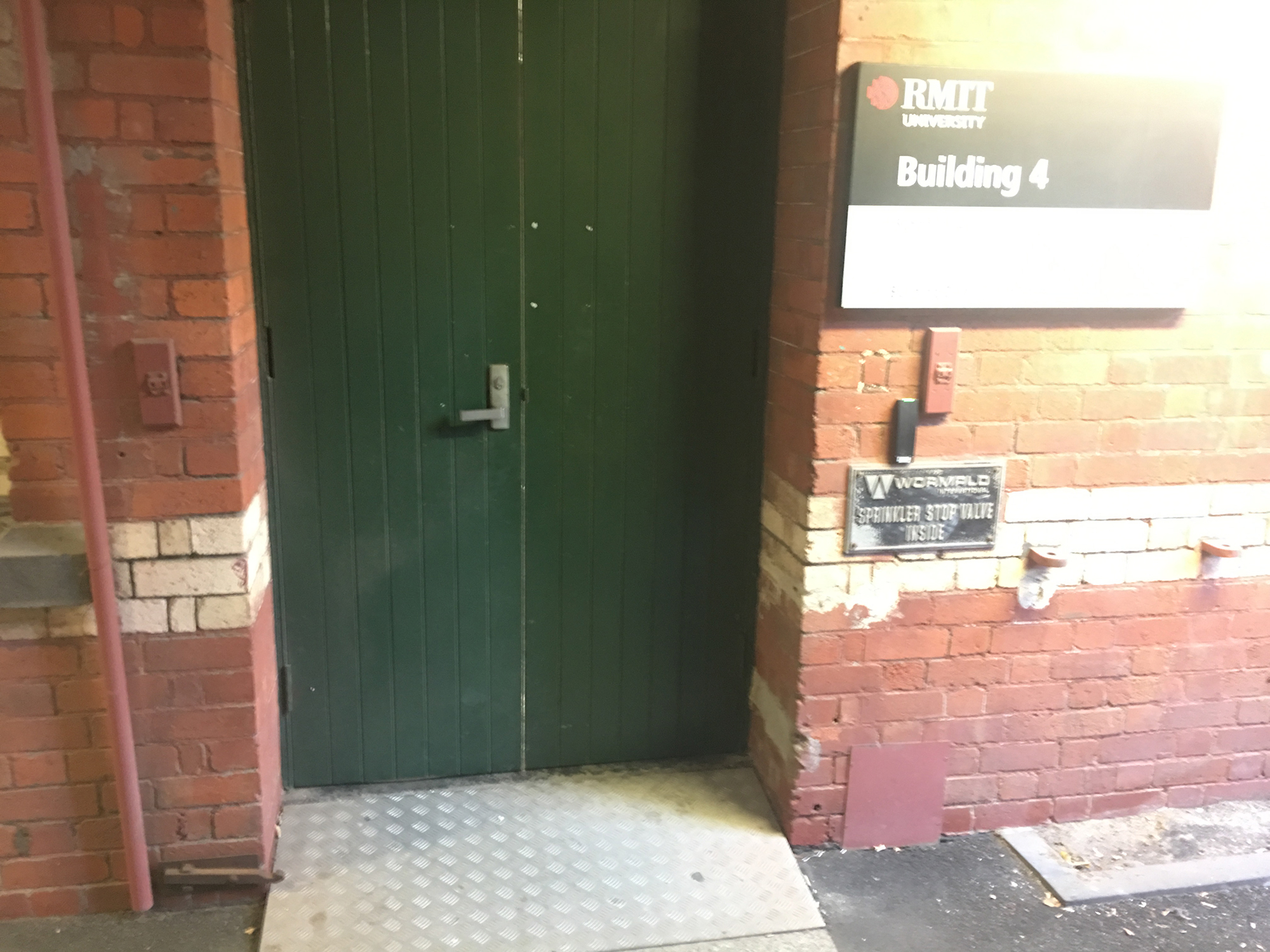 Before: Previous Building 4 Entry – with heavy manually opening door and poor floor grading.
Before: Previous Building 4 Entry – with heavy manually opening door and poor floor grading.
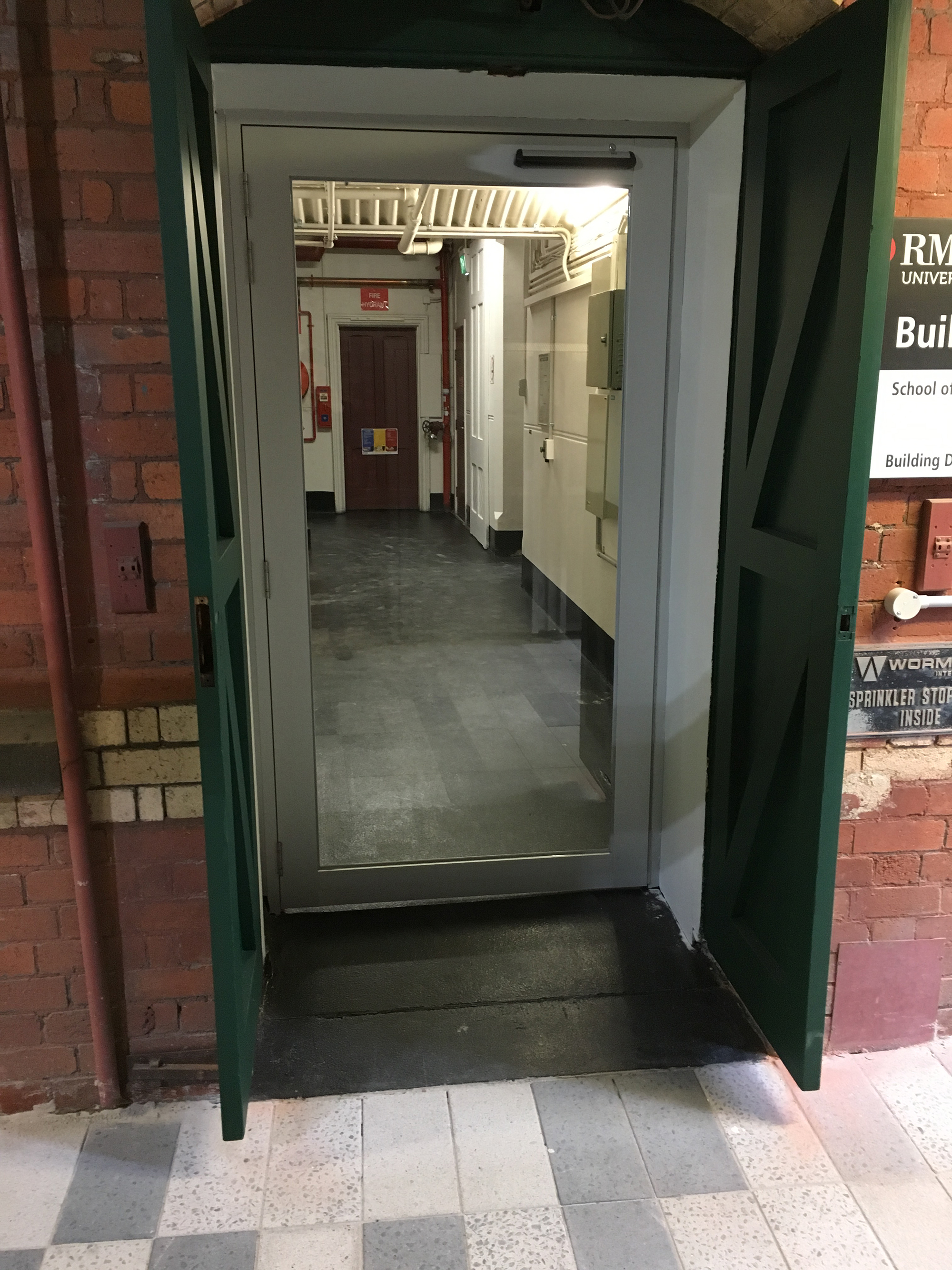 After: Building 4 entry – door automation, floor levelling and access control relocation.
After: Building 4 entry – door automation, floor levelling and access control relocation.


